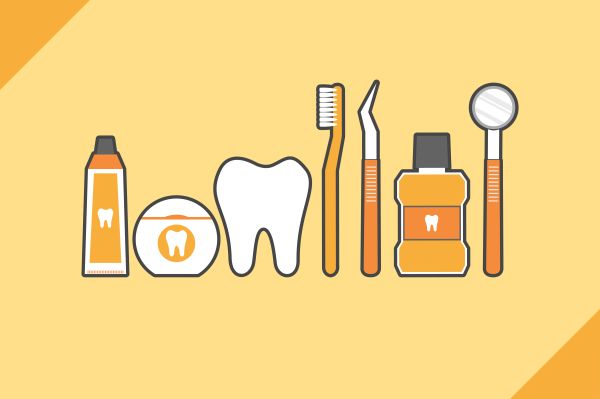A Dental Office Near Kennett Square Shares 4 Things to Know About Fluoride Treatments

You are thinking of going to a dental office to get fluoride treatments, but you are not quite sure yet. You know that fluoride helps prevent cavities, but do you need a fluoride treatment? Find out more about fluoride treatments to determine if you should schedule one.
What to know about fluoride treatment
1. Fluoride treatments strengthen enamel
Many people know that fluoride fights cavities, but few know how. Fluoride treatments strengthen the enamel, making it more difficult for cavities to form.
To understand this, one must understand the process of demineralization and remineralization. Demineralization occurs when people eat and drink items that contain sugar. The sugar attracts bacteria, and then acid forms. Acid removes calcium and phosphate from the enamel and makes it softer. This leads to decay. It is important to understand how fluoride impacts this process.
Remineralization is a process that repairs enamel. Saliva contains calcium and phosphate. Salivary glands go into overdrive during demineralization to add minerals back to the enamel. Fluoride makes the remineralization process more powerful, improving the strength of the enamel.
2. Fluoride treatments are recommended for patients at high risk for cavities
Fluoride plays an important role in preventing tooth decay. It can even repair teeth that are in the early stages of decay. Patients who are at high risk for cavities can go to a dental office to get a fluoride treatment.
While anyone can get cavities, some people are at a higher risk than others. Poor oral hygiene is one risk factor, but it is far from the only one. Other risk factors include:
- A history of drug or alcohol abuse
- Eating disorders
- Eating a poor diet
- Existing tooth decay
- Defects in the enamel
- Dry mouth
- Exposed roots
- Failure to go to the dentist regularly
Those who are at high risk should visit the dentist.
3. Insurance typically covers children's fluoride treatments
Both children and adults can get fluoride treatments, but some insurance policies only cover treatments for children. People can talk to their dentists prior to treatment to find out if it will be covered.
4. The process is quick
Some people have dental anxiety, so the idea of going to a general dentist for a fluoride treatment is overwhelming. However, the treatment only takes a few minutes, and shots are not required.
The general dentist might use a varnish, foam, gel or solution for the fluoride treatment. There are two options for applying the treatment. The dentist might use a brush or swab to apply it to the teeth, or a tray. If the fluoride is placed in a tray, patients must hold it in their mouths for several minutes.
Visit a dental office for healthy teeth
Fluoride treatments at the general dentist can help you get healthier teeth. Fluoride strengthens enamel and is especially beneficial for those who are at high risk for cavities. The process is quick, and it might even be covered by insurance. Contact your dental office to find out more about these treatments.
Request an appointment here: https://www.leardidental.com or call Leardi Family Dentistry at (610) 444-8744 for an appointment in our Kennett Square office.
Check out what others are saying about our services on Yelp: Read our Yelp reviews.
Recent Posts
A kid-friendly dentist treats oral health concerns in children. However, an equally important part of their job is to work with parents to improve their child’s oral hygiene at home. This is because the majority of oral care takes place away from the office, so parents knowing how to help their child maintain a beautiful…
A dental implants restoration can replace a missing tooth that falls out naturally, gets knocked out or is extracted. A dental implant restoration is often recommended after tooth extraction, as it prevents bone loss from occurring and offers cosmetic and functional benefits. There are several ways to replace a missing tooth after an extraction, including with…
Preventive dental care is a great way to help reduce the risk of oral health conditions. Preventive dental care includes regular checkups, brushing teeth twice a day, and flossing at least once daily. These tasks can be time-consuming and seem trivial, but they are crucial for maintaining good oral hygiene. The American Dental Association recommends that…
If you desire a more aesthetically pleasing smile, dental veneers are options that you should consider. Veneers are thin, customizable shells created to cover the front sides of the teeth. A dentist will often suggest this option when there are imperfections on the teeth, some of which are covered in this article.Teeth gaps are called…


